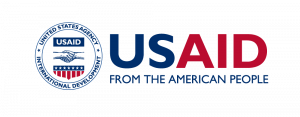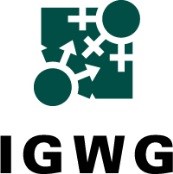Resources
Gender and Data Resources Related to COVID-19
Data2X
With the help of partners and friends, Data2X has compiled a running list of resources and current reporting on gender and gender data as they relate to COVID-19 preparedness and response around the world, including the current and anticipated impacts of the pandemic.
Access the list of resources Click to visit home page.
Flattening the Curve: Finance and the Pandemic of Gender-Based Violence
UNICEF
As the global pandemic of VAWG is addressed with the combined efforts of many organizations and individuals—recognizing specifically the many women’s networks on the frontlines—it is also important to focus on the opportunities COVID-19 presents for economic and financial systems as active partners to build solutions and mitigate violence. This blog article looks at how UNICEF and Criterion Institute have been exploring pathways to engage systems of finance in addressing GBV in crises.
Read the blog here.
COVID-19 and Ending Violence Against Women and Girls
UN Women
This brief highlights emerging evidence of the impact of the recent COVID-19 pandemic on VAWG. It makes recommendations to be considered by all sectors of society, from governments to international organizations and to civil society organizations, to prevent and respond to VAWG at the onset, during, and after the public health crisis, with examples of actions already taken. It also considers the economic impact of the pandemic and its implications for VAWG in the long term.
Read the report here.
A Practical Approach to Prevent, Address and Document Domestic Violence under COVID-19
MADRE
With 90 countries in lockdown and nearly four billion people sheltering at home from the COVID-19 pandemic, domestic violence has become an epidemic within an epidemic. In response, UN Secretary General Guterres called for a global “ceasefire” on domestic violence, lending high-level support to this long-standing demand. To have meaning, the Secretary General’s call must be coupled with action at the local level—where domestic violence occurs. This is where local women’s organizations can play a crucial role. The international interventions that follow should look to women’s groups working on the frontlines of the crisis to lead.
Read the report here.
COVID-19 Sex-Disaggregated Data Tracker
Global Health 5050
To understand the role gender is playing in the COVID-19 outbreak, countries urgently need to begin both collecting and publicly reporting sex-disaggregated data. In this tracker you can find graphs on sex-disaggregated data, data disaggregated by age and sex, and data on associated health risks and comorbidities that may influence the risk of severe COVID-19 infection or death in men and women.
Access the tracker here.
News Articles
Women and the Frontlines of COVID-19
Forbes
With almost 80% of women operating on the frontlines of the COVID-19 pandemic, the long-term effects on them are of increasing concern. With other potential risks such as child care implications and domestic violence, women are more likely than men to say their lives have been disrupted because of the coronavirus. The article looks at the short- and long-term implications for gender equality during and following COVID-19.
Read the article here.
Domestic Violence Is on the Rise With Coronavirus Lockdown. The Responses Are Missing the Point
The Intercept
In the weeks since populations worldwide have been directed to “stay home” to prevent the novel coronavirus’s spread, cases of domestic violence have surged. According to statistics released, U.S. law enforcement agencies have seen domestic violence cases rise up to 35% in recent weeks. This article highlights the correct responses needed by national and local governments, along with nongovernmental organizations, to address the global rise in domestic violence during the pandemic.
Read the article here.
Lessons From African Feminists Mobilizing Against COVID-19
Earth Institute, Columbia University
The Women, Peace, and Security program hosted a webinar with its Peace and Social Change Fellowship participants, who are leaders of grassroots women’s organizations across Nigeria, Uganda, Democratic Republic of the Congo, Lesotho, and Sudan. The webinar discussed how women are mobilizing their communities to respond to the growing threat of COVID-19. Their strategies offer wisdom on practical ways to care for oneself and one another and on building societies grounded in solidarity, equity, and care for communities.
Read the article here.
Global Lockdowns Resulting in ‘Horrifying Surge’ In Domestic Violence, U.N. Warns
NPR
Citing a sharp rise in domestic violence amid global coronavirus lockdowns, António Guterres called on governments around the world to make addressing the issue a key part of their response to the pandemic. Speaking late Sunday he said, “for many women and girls, the threat looms largest where they should be safest—in their own homes.”
Read the article here.
The Coronavirus Is a Disaster for Feminism
The Atlantic
Pandemics affect men and women differently, as they often magnify all existing inequalities. Working from home in a white-collar job is easier; employees with salaries and benefits will be better protected; and self-isolation is less taxing in a spacious house than a cramped apartment. But one of the most striking effects of the coronavirus will be to send many couples back to the 1950s. This article details the impact of the virus on women’s independence across the world.
Read the article here.
The Coronavirus Fallout May Be Worse for Women Than Men— Here’s Why
World Economic Forum
Women make up the majority of workers in the health and social care sector—70% in 104 countries analyzed by the World Health Organization. As the fight against COVID-19 continues, an increasing number of women around the world are on the frontlines, disproportionately affected and burdened by the outbreak. Many of them will be expected to work longer hours while juggling domestic responsibilities such as childcare.
Read the article here.




